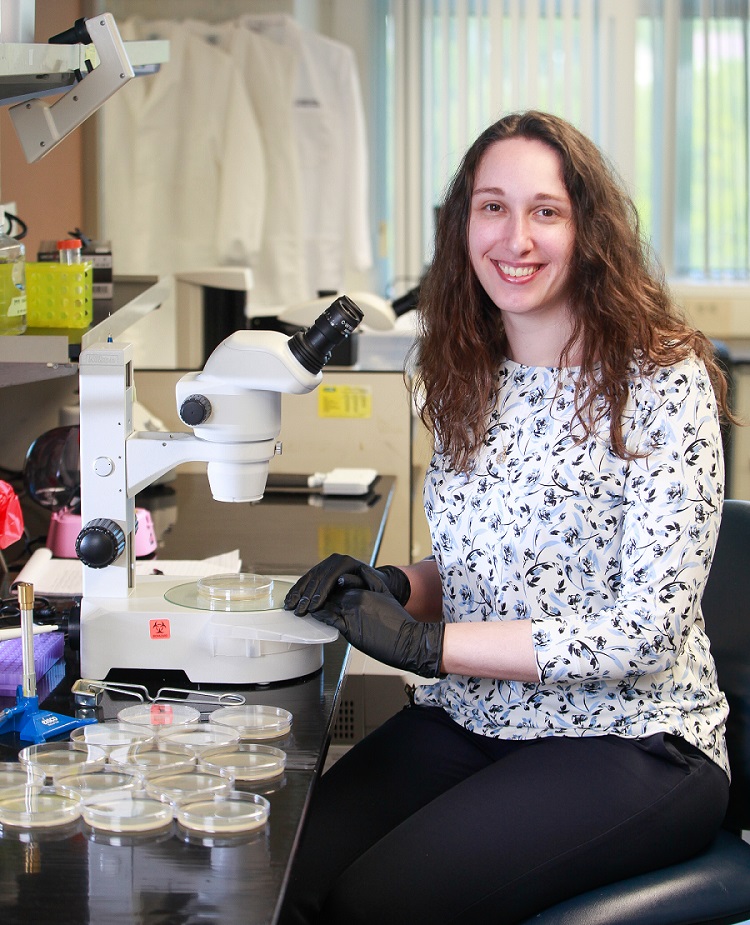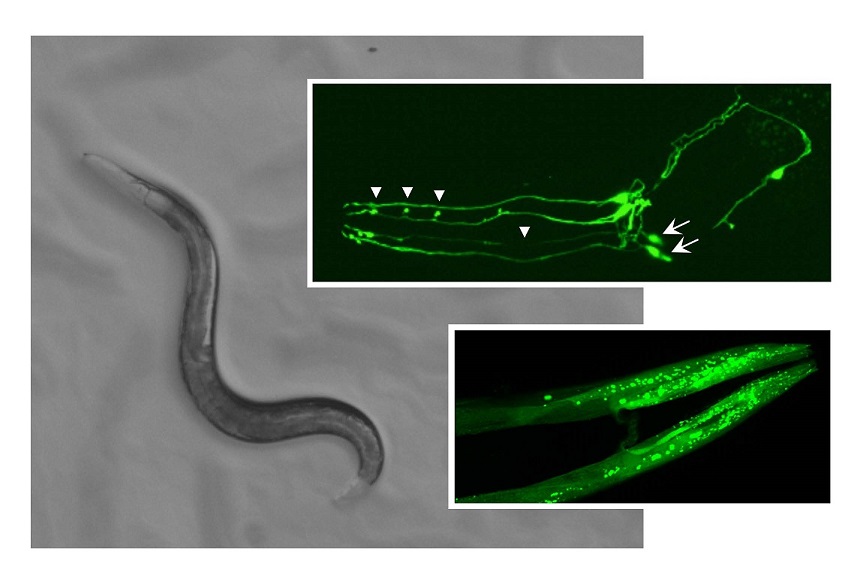Danielle Mor, PhD

Assistant Professor
Department of Neuroscience & Regenerative Medicine
Email: dmor@augusta.edu
Mailing Address:
Dept. of Neuroscience
& Regenerative Medicine
1120 15th Street, Rm. CA4014
Medical College of Georgia
at Augusta University
Augusta, GA 30912
Education:
2010-2016 Ph.D. in Neuroscience, University of Pennsylvania School of Medicine, Philadelphia, PA
2006-2010 B.A. in Neuroscience and Behavior, Wesleyan University, Middletown, CT
Training:
2016-2020 Postdoctoral Fellowship, Princeton University, Princeton, NJ

“We use the nematode worm, C. elegans, to study age-related disease phenotypes,
including neurodegeneration and protein aggregation.”
Research Interests:
Parkinson’s disease, neurodegeneration, aging, microbiome in disease
The main goal of my research is to identify mechanisms and modifiers of α-synuclein toxicity in Parkinson’s disease, using the nematode worm C. elegans. Parkinson’s is an age-related neurodegenerative disorder in which patients experience both motor and non-motor symptoms. A defining feature of the disease is the formation of abnormal protein aggregates containing α-synuclein, yet the causes and consequences of α-synuclein aggregation remain unclear. Increasing evidence suggests that α-synuclein pathology may first appear in neurons innervating the gastrointestinal tract, and may spread in a prion-like manner to the central nervous system. Our research focuses on identifying the factors that regulate α-synuclein prion-like spread and neurotoxicity, using a combination of high-resolution imaging, cell type-specific RNA-sequencing, metabolomics, and high-throughput genetic and drug screening approaches. Another major interest of the lab is to understand the role of diet and the microbiome in Parkinson’s disease.
Selected Publications:
- Mor DE, Sohrabi S, Kaletsky R, Keyes W, Kalia V, Miller G, Murphy CT. Metformin rescues Parkinson’s disease phenotypes caused by hyperactive mitochondria, Proc Natl Acad Sci USA. 2020 Oct 6;202009838. doi: 10.1073/pnas.2009838117. Online ahead of print.
- Mor DE, Murphy CT. Mitochondrial hyperactivity as a potential therapeutic target in Parkinson’s disease, Translational Medicine of Aging, 2020, 4:117-120.
- Mor DE, Daniels MJ, Ischiropoulos H. The usual suspects, dopamine and alpha-synuclein, conspire to cause neurodegeneration. Movement Disorders 2019; 34(2):167-179.
- Yao V,* Kaletsky R,* Keyes W,# Mor DE,# Wong AK, Sohrabi S, Murphy CT, Troyanskaya OG. An integrative tissue network approach to identify and test human disease genes. Nature Biotechnology 2018; 36:1091-99. (*#equally-contributing authors)
- Mor DE, Tsika E, Mazzulli JR, Gould NS, Kim H, Daniels MJ, Doshi S, Gupta P, Grossman JL, Tan VX, Kalb RG, Caldwell KA, Caldwell GA, Wolfe JH, Ischiropoulos H. Dopamine induces soluble α-synuclein oligomers and nigrostriatal degeneration. Nature Neuroscience 2017; 20:1560-68.